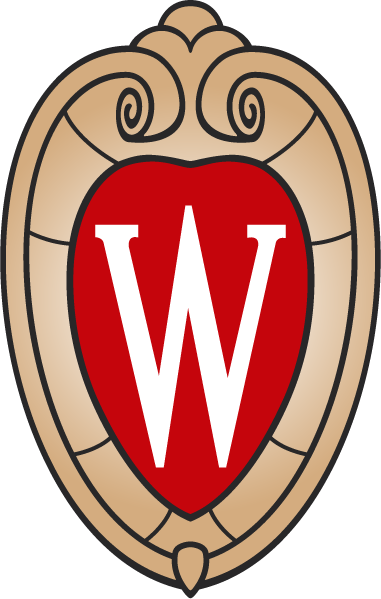
Course Overview
Acquire comprehensive knowledge of inspector responsibilities, regulatory compliance (FRA 214 and FRA 237), and various types of inspections, with a focus on periodic inspections. Learn to inspect timber, steel, concrete, moveable bridges, and culverts effectively. Enhance your skills in report writing and ensure your activities meet industry standards.
Learning Outcomes
- Understand inspector responsibilities and compliance with FRA regulations.
- Perform detailed inspections on various bridge types, including timber, steel, and concrete.
- Write comprehensive reports that meet industry standards and regulatory requirements.
Who Should Attend?
- Bridge engineers, inspectors, and supervisors who ensure the structural integrity and safety of railroad bridges through thorough inspections.
- Railroad engineers, managers, and supervisors who oversee the maintenance and safety of railroad infrastructure, ensuring compliance with regulations.
- Railroads, consultants, contractors, and agencies who collaborate on railroad bridge projects, providing expertise in design, construction, and maintenance.
Additional Information
You have the flexibility to attend this course either online or in-person in Madison. Online participants will join for the first two days, while in-person attendees will benefit from an additional field trip on the third morning to inspect three rail bridge structures for hands-on inspection training.
Course Outline
Introduction
- Purpose of class
- Safety
- Railroad employees vs. consultants/contractors
Inspector’s Responsibilities
- Removing a bridge from service
- FRA 214, 213/237
- Training requirements
- Written reports
- Know your abilities
- Know your limits
- Techniques, Tools and Equipment
Types of Inspections
- Periodic
- Detailed
- Emergency
- Inspections under load
Prior to Beginning the Inspection
- Obtaining railroads bridge inventory
- Obtaining previous inspection records
- Ranking system
- Operating practices
- Equipment
- Planning
- Creating a schedule
Inspection Process
- Site overview
- Tools and equipment
- Walk-throughs
- Photographic documentation
- Note taking
- Identifying components
- Measurements
Timber Bridges
- Nomenclature
- Backwalls/wingwalls
- Pilings, frames, caps, etc.
- Ballast decks
- Open decks
Concrete Bridges
- Nomenclature
- Stone/masonry substructures
- Backwalls/wingwalls
- Abutments, piers, pilings, caps
- Tubs, box girders, deck slabs, arches
Steel Bridges
- Nomenclature
- Stone/masonry substructures
- Backwalls/wingwalls
- H-piling and pipe piling
- Towers, column piers, caps, bracing
- Beam spans
- Deck plate girders, through plate girders
- Through truss spans
Moveable Bridges
- Nomenclature
- Swing, lift, and bascule spans
- Mechanical & electrical systems
Culverts
- Nomenclature
- Concrete, corrugated metal, smooth pipe, wood box, stone
Field Trip to Bridges for Hands-On Exercise (*This activity will NOT be available in the online version of the course.)
Report Writing
- Cover letter
- Conditions sheet
- Content and format
- Deck section, substructure section, superstructure section
Summary of recommendations
Instructors
Peter Schierloh
Peter Schierloh, PE, is a seasoned railroad bridge engineer with over two decades of experience in the field. He currently serves as a Project Engineer at SW Bridge Engineers, LLC in DeForest, Wisconsin, a role he has held since the firm’s inception in 2007. Peter specializes in the inspection, design, and rating of railroad bridges across the United States. Prior to this, he worked with E80 Plus Constructors, LLC, managing railroad bridge construction projects. He earned his Bachelor of Science in Civil and Environmental Engineering from Michigan Technological University in 1996. Peter is a licensed Professional Engineer in multiple states and actively contributes to the industry as a member of AREMA Committee 10.
Dave Peterson
Dave is the Program Director for the University of Wisconsin–Madison Railroad Engineering and Operations Program. The program consists of 12 courses conducted annually on topics ranging from introduction to railroad engineering and operations to signaling, bridges, crossings, and traction power. He is also the Department Administrator for Interdisciplinary Professional Programs. Dave has a BS in Civil and Environmental Engineering and an MBA from UW–Madison.
Richard (Rick) Floyd
Richard Floyd, PE has spent the last 39 years in the railroad bridge industry. After receiving his degree in Civil Engineering from The University of Illinois, he spent 8 years in the Bridge Department of a Class 1 railroad where he was involved in all aspects of bridge inspection, design, engineering, repair, and inspection. For the last 31 years Rick has worked for Koppers Railroad Structures(previously Osmose Railroad Services) in several roles and is currently a Senior Project Manager. At Koppers he again has been involved in all aspects of bridge inspection, engineering, design, repair, and construction, with his vast majority of experience in the repair and rehabilitation of railroad bridges.
Upcoming dates (0)
Take this course when it’s offered next!
